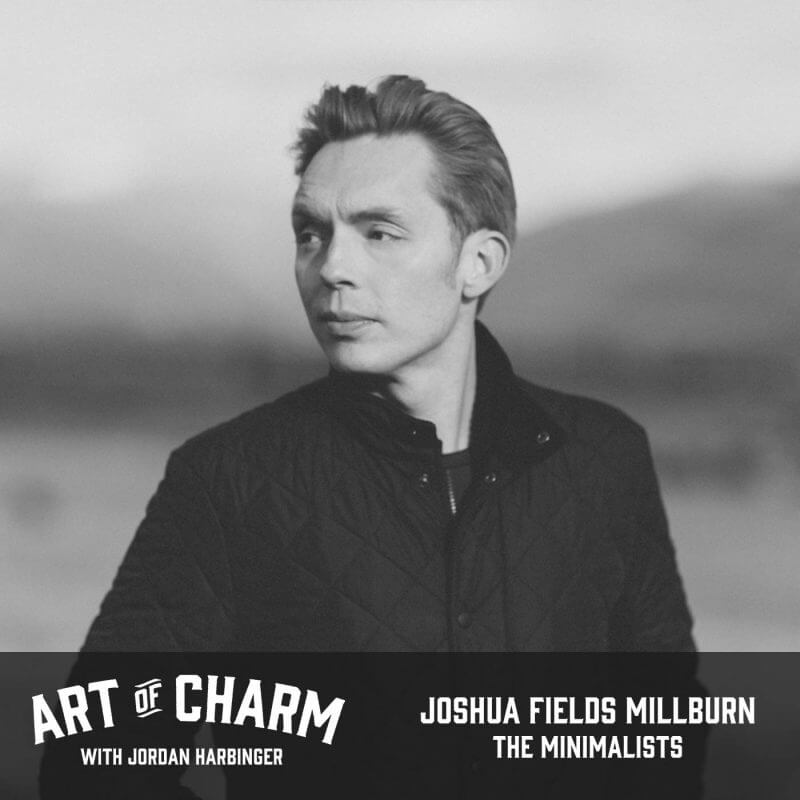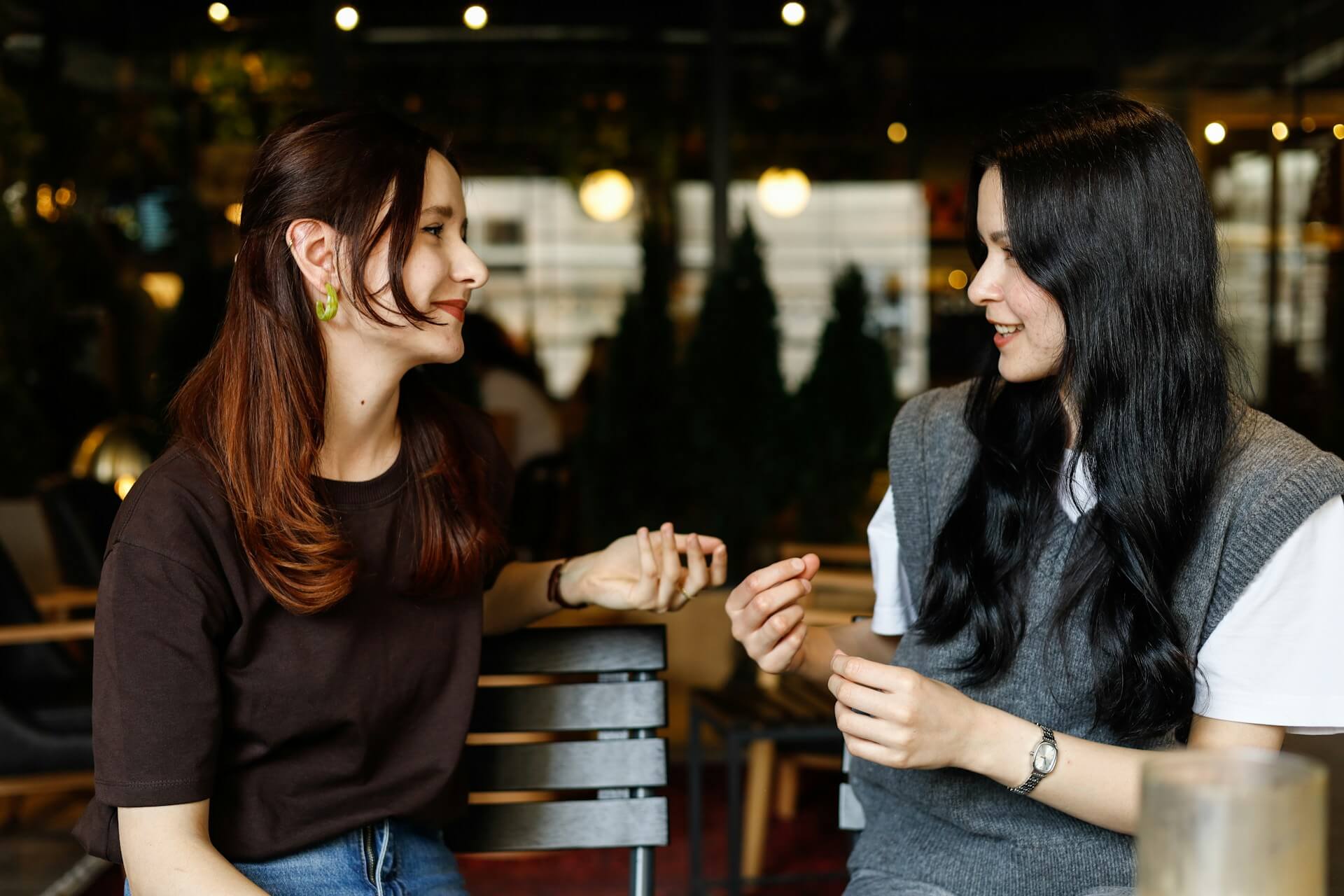Joshua Fields Millburn (@JFM) of The Minimalists tells us how we can make do with less of what we don’t need to have room for more of what we value most.
The Cheat Sheet:
- What is minimalism, and how does putting it to practice give you more from less?
- How can letting go of things enhance creativity and improve your health?
- What’s the 20/20 rule?
- Can you and a friend endure the challenges of the 30-Day Minimalism Game?
- Do you have what it takes to be a packing party animal?
- And so much more…
[aoc-subscribe]
Joshua Fields Millburn and lifelong friend Ryan Nicodemus are The Minimalists — champions of minimalism, as their elevator pitch tells us, “a lifestyle that helps people question what things add value to their lives. By clearing the clutter from life’s path, we can all make room for the most important aspects of life: health, relationships, passion, growth, and contribution.”
Joshua joins us on this episode of The Art of Charm to tell us why, in a society many dismiss as being overly focused on crass consumerism, we might benefit by taking a step back and examining what’s really important to us, what we can do without, and how we can start clearing our own clutter to better enjoy what’s best in life.
More About This Show
Success — and the happiness supposedly accompanying the achievement of that success — means different things to different people. Just ask Joshua Fields Millburn, co-author of Everything That Remains: A Memoir by The Minimalists.
“Seven years ago I was 28 years old and sort of living that cookie cutter American Dream,” says Joshua. “I’d sort of achieved everything I ever wanted: the six-figure salary, the luxury cars — plural — the closets full of expensive clothes, and all the cliche things. The suburban house with more toilets than people. All the stuff that basically filled every corner of my consumer-driven lifestyle. Although I was living the American Dream, I realized it wasn’t my dream.”
It took two tragic events in just one month — the end of his marriage and the death of his mother — to make him examine the trappings of his life and try to make sense of why he wasn’t happy in spite of everything he supposedly had going for him. All the stuff — the trophies of his success — weren’t really doing anything to improve his life in any significant way. In fact, the more accoutrements he piled on top of his stash only led to more discontent, more debt, more stress, more anxiety, and a greater sense of being overwhelmed.
“I had become very successful in a narrow sense,” says Joshua, “but unsuccessful in virtually all other areas of my life.”
When Joshua discovered minimalism by way of Colin Wright’s Exile Lifestyle, it allowed him to spend the next eight months cutting back on the excesses that resulted from constantly chasing happiness. In the process of eliminating the nonessentials, he realized this: “If you live a more meaningful life, this thing called happiness ends up being a beautiful by-product.”
And while there are a number of ways one might practice minimalism that might clash with another minimalist’s methods, the common question they’re all attempting to answer is very simple: how might your life be better with less?
But less what?
“The average American household has more than 300,000 items in it,” says Joshua. “Of course most of us aren’t hoarders. We just own a lot of stuff. We have this lifetime of accumulation of things that we hold on to — many of the things we hold on to just in case: the three most dangerous words in the English language! So there I was looking around at all my stuff and I knew that some of it would add value to my life, but I didn’t know what. So I started to ask this question: ‘Does this add value to my life?’ I started off small and I decided to get rid of one item a day over the course of 30 days.”
With 300,000 items, Joshua concedes the loss of 30 items wouldn’t make much of a dent, but it was an important start. It allowed him to analyze the way he’d become attached to a lot of things that really didn’t add much value to his life. “I let go of way more than 30 items in the first 30 days…it became this personal challenge, discovering what I could get rid of,” says Joshua. “The more I did it, the lighter I felt. The freer and happier I became as I let go. And the people around me noticed, too.”
Listen to this episode of The Art of Charm in its entirety to learn more about how Joshua convinced his best friend to go all in on their shared minimalist adventure, how throwing a packing party — boxing all of your possessions as if you’re moving and only unboxing things as the need arises — can help you decide what should stay and what should go, how to use the 20/20 rule to combat the clutter of those thousands of just in case items you probably have overflowing from junk drawers around the house, what Joshua says to people who decry minimalism as a fad, how minimalism isn’t about giving up everything material and taking a vow of poverty (unless that’s what happens to make you happy), why the pursuit of less isn’t a form of avoidance, how a relationship can survive when one partner is a minimalist and the other is not, what you and a friend (or enemy) have to gain by taking the 30-Day Minimalism Game challenge, and lots more.
THANKS, JOSHUA FIELDS MILLBURN!
If you enjoyed this session with Joshua Fields Millburn, let him know by clicking on the link below and sending him a quick shout out at Twitter:
Click here to thank Joshua Fields Millburn at Twitter!
Resources from this episode:
- The Minimalists
- Minimalism: A Documentary About the Important Things
- The 30-Day Minimalism Game
- The Minimalists Podcast
- Essential: Essays by The Minimalists by Joshua Fields Millburn and Ryan Nicodemus
- Everything That Remains: A Memoir by The Minimalists by Joshua Fields Millburn and Ryan Nicodemus
- Minimalism: Live a Meaningful Life by Joshua Fields Millburn and Ryan Nicodemus
- Joshua Fields Millburn at Twitter
You’ll also like:
- The Art of Charm Challenge (click here or text 38470 in the US)
- The Art of Charm Bootcamps
- Best of The Art of Charm Podcast
- The Art of Charm Toolbox
- The Art of Charm Toolbox for Women
- Find out more about the team who makes The Art of Charm podcast here!
On your phone? Click here to write us a well-deserved iTunes review and help us outrank the riffraff!




